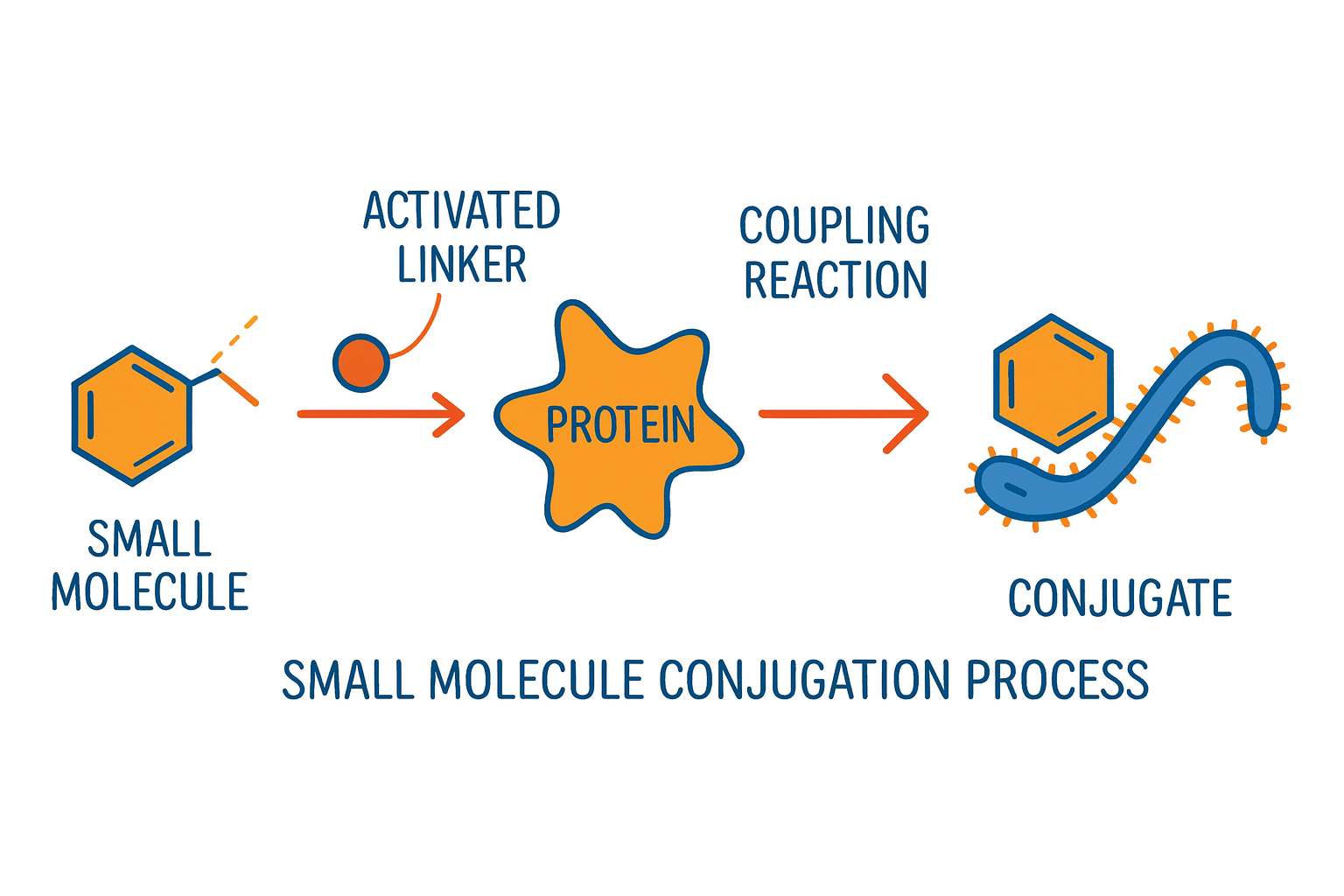AtaGenix Laboratories
AtaGenix Laboratories
Comprehensive antibody development for small molecules - From antigen modification to assay kit production
Small molecule antibodies are widely used in various fields including food safety testing, disease-related metabolite detection, drug screening, and doping detection. Atagenix provides comprehensive technical services covering small molecule modification, conjugation, antibody production, and assay kit development.
Detection of contaminants, additives, and harmful substances in food products
Metabolite detection for disease diagnosis and monitoring
Detection of drugs of abuse and therapeutic compounds
Performance-enhancing substance detection in sports
An antigen (Ag) is any substance capable of inducing an immune response in an organism. It can be specifically recognized and bound by T/B lymphocyte surface antigen receptors (TCR/BCR), activating T/B cells to proliferate and differentiate, producing immune response products (sensitized lymphocytes or antibodies). Antigens possess two important properties: immunogenicity and immunoreactivity.
Immunogenicity refers to an antigen's ability to induce specific immune responses and produce antibodies or sensitized lymphocytes. Immunoreactivity is the ability to specifically bind with corresponding immune effector substances (antibodies or sensitized lymphocytes) in vitro and in vivo.
Complete antigens possess both immunogenicity and immunoreactivity. Examples include most proteins, bacteria, viruses, and bacterial exotoxins. These substances can independently induce immune responses and react with antibodies.
Haptens have immunoreactivity but lack immunogenicity. Small molecules belong to this category and must be conjugated to large molecular carriers to gain immunogenicity and induce antibody production. This conjugation is essential for successful immunization.

Schematic representation of small molecule conjugation to carrier proteins for antibody production
Small molecules are conjugated to carrier proteins (such as BSA, KLH, or OVA) to create immunogenic complexes capable of eliciting strong antibody responses.
Comprehensive evaluation of whether modification is needed for conjugation. Simply provide the CAS number or molecular structure.
Advanced small molecule modification and conjugation techniques with proven reliability and consistency.
Small molecule-BSA conjugate affinity chromatography for high-purity antibody isolation with minimal cross-reactivity.
Choose between polyclonal and monoclonal antibody production based on your specific research and application needs.
| Service Item | Client Provides | Service Content | Service Period | Deliverables |
|---|---|---|---|---|
| Small Molecule Monoclonal Antibody Production (Rat/Mouse/Rabbit) |
Antigen (≥90% purity) - We can source materials if needed |
• Antigen-Carrier Protein Conjugation • Animal Immunization • Cell Fusion • Subclone Screening • Monoclonal Antibody Production • Quality Control Testing • Technical Report |
4-5 months | • Conjugated Carrier Protein-Small Molecule • Monoclonal Antibody (Rat/Mouse/Rabbit) • Monoclonal Cell Lines (1-3 clones) • Technical Service Report |
Contact our expert team to discuss your small molecule antibody development needs
Get Started